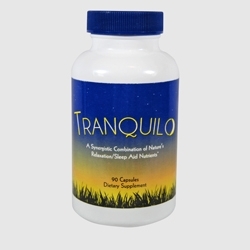Sean Moloughney12.09.09
While dietary supplements can help some people meet their nutrition needs, eating a wide variety of nutrient-rich foods is still the best way for most people to obtain the nutrients they need to be healthy and reduce their risk of chronic disease, according to an updated position paper from the American Dietetic Association titled "Nutrient Supplementation." This paper is an update of ADA's "Fortification and Nutritional Supplements" position paper, published in 2005.
Published in the December issue of the Journal of the American Dietetic Association, the update represents the association's official stance on nutrient supplementation.
It is the position of the American Dietetic Association that the best nutrition-based strategy for promoting optimal health and reducing the risk of chronic disease is to choose a wide variety of foods. Additional nutrients from supplements can help some people meet their nutrition needs as specified by science-based nutrition standards such as the Dietary Reference Intakes.
ADA's position and accompanying paper were written by registered dietitians Melissa Ventura Marra, a nutrition consultant in Boynton Beach, FL, and Andrea Boyar, associate professor of dietetics, foods and nutrition and chair of the department of health sciences at Lehman College, City University of New York.
According to the authors, supplement sales in the U.S. in 2007 totaled nearly $24 billion, due in large part to "the aging of the population and consumer desire to maintain good health and prevent disease." Sales of supplements such as calcium, B vitamins, vitamin C, vitamin A/beta-carotene, magnesium and iron have grown, while vitamin E supplement sales declined slightly.
The increase in sales of supplements may not have been accompanied by an increase in consumers' knowledge about what they are taking, according to the authors, who add that registered dietitians have the knowledge and experience to educate consumers on safe and appropriate selection and use of supplements.
The authors write: "Although many Americans use dietary supplements, a 2009 report from the U.S. Government Accountability Office stated that 'according to experts, consumers are not well-informed about the safety and efficacy of dietary supplements and have difficulty interpreting labels on these products.' The Government Accountability Office expressed concern that the uninformed use of dietary supplements may expose consumers to health risks. The expertise of dietetics practitioners is needed to help educate consumers on safe and appropriate selection and use of dietary supplements, including nutrient supplements."
ADA's position paper reaffirms the importance of obtaining nutrients from the consumption of a variety of nutrient-rich foods while acknowledging that nutrient supplements may be needed to help fill dietary gaps for some. The paper discusses the effectiveness of nutrient supplements in helping to fill dietary gaps as well as the potential for nutrient excesses. It also highlights issues to consider when assessing the need for supplementation and provides updates on federal regulations. And ADA's position paper identifies roles and responsibilities of food and nutrition professionals such as registered dietitians in making evidence-based recommendations and provides key resources to keep RDs informed.
Published in the December issue of the Journal of the American Dietetic Association, the update represents the association's official stance on nutrient supplementation.
It is the position of the American Dietetic Association that the best nutrition-based strategy for promoting optimal health and reducing the risk of chronic disease is to choose a wide variety of foods. Additional nutrients from supplements can help some people meet their nutrition needs as specified by science-based nutrition standards such as the Dietary Reference Intakes.
ADA's position and accompanying paper were written by registered dietitians Melissa Ventura Marra, a nutrition consultant in Boynton Beach, FL, and Andrea Boyar, associate professor of dietetics, foods and nutrition and chair of the department of health sciences at Lehman College, City University of New York.
According to the authors, supplement sales in the U.S. in 2007 totaled nearly $24 billion, due in large part to "the aging of the population and consumer desire to maintain good health and prevent disease." Sales of supplements such as calcium, B vitamins, vitamin C, vitamin A/beta-carotene, magnesium and iron have grown, while vitamin E supplement sales declined slightly.
The increase in sales of supplements may not have been accompanied by an increase in consumers' knowledge about what they are taking, according to the authors, who add that registered dietitians have the knowledge and experience to educate consumers on safe and appropriate selection and use of supplements.
The authors write: "Although many Americans use dietary supplements, a 2009 report from the U.S. Government Accountability Office stated that 'according to experts, consumers are not well-informed about the safety and efficacy of dietary supplements and have difficulty interpreting labels on these products.' The Government Accountability Office expressed concern that the uninformed use of dietary supplements may expose consumers to health risks. The expertise of dietetics practitioners is needed to help educate consumers on safe and appropriate selection and use of dietary supplements, including nutrient supplements."
ADA's position paper reaffirms the importance of obtaining nutrients from the consumption of a variety of nutrient-rich foods while acknowledging that nutrient supplements may be needed to help fill dietary gaps for some. The paper discusses the effectiveness of nutrient supplements in helping to fill dietary gaps as well as the potential for nutrient excesses. It also highlights issues to consider when assessing the need for supplementation and provides updates on federal regulations. And ADA's position paper identifies roles and responsibilities of food and nutrition professionals such as registered dietitians in making evidence-based recommendations and provides key resources to keep RDs informed.





















